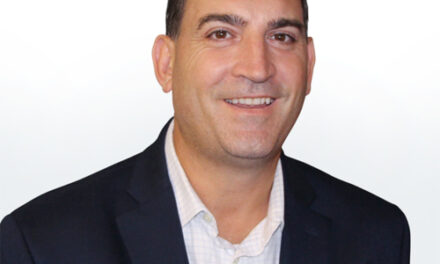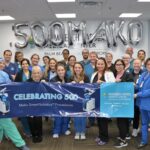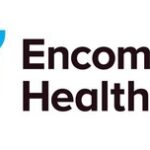 Just a few short years ago, care for critically ill patients could only be provided in intensive care units (ICU) or coronary care units (CCU). Today, the field of critical care has expanded, increasing the demand for specially trained nurses to provide safe and appropriate care in various settings such as neuro ICU, surgical ICU, cardiac ICU, pediatric ICU, neonatal ICU, telemetry units, step down units, emergency rooms, post anesthesia recovery units and even satellite units where moderate sedation is provided, to name a few. The result has been a surge in opportunities for nurses who are eager to work in critical care settings. According to the American Association of Critical Care Nurses (2015), registered nurses, nurse practitioners and other healthcare practitioners “are being increasingly integrated into intensive care units and hospital-based care teams” as a strategy to utilize staffing more effectively and enhance quality of care.
Just a few short years ago, care for critically ill patients could only be provided in intensive care units (ICU) or coronary care units (CCU). Today, the field of critical care has expanded, increasing the demand for specially trained nurses to provide safe and appropriate care in various settings such as neuro ICU, surgical ICU, cardiac ICU, pediatric ICU, neonatal ICU, telemetry units, step down units, emergency rooms, post anesthesia recovery units and even satellite units where moderate sedation is provided, to name a few. The result has been a surge in opportunities for nurses who are eager to work in critical care settings. According to the American Association of Critical Care Nurses (2015), registered nurses, nurse practitioners and other healthcare practitioners “are being increasingly integrated into intensive care units and hospital-based care teams” as a strategy to utilize staffing more effectively and enhance quality of care.
.jpg)
In 2014, Miami Dade College’s (MDC) School of Continuing Education and Professional Development (SCEPD) at the Medical Campus saw the growing need to train nurses in this area and began to lay the groundwork for a Critical Care Training curriculum. The work was timely, as recent shifts in critical care have begun to leave many nurses wondering about the right “track” for their career. They know specialized knowledge and skills are needed to care for very sick patients with complex diagnoses. Unfortunately, however, only a few hospitals offer critical care training due to time constraints, funding priorities and other challenges. In addition, experienced critical care nurses are preferred over the novice learner. These concerns served as the impetus for MDC’s Critical Care Training.
The program was designed by Dr. Annabelle Scott, an Advanced Registered Nurse Practitioner (ARNP) with over 35 years of nursing and critical care experience, utilizing data provided by industry partners, literature reviews, local hospitals and healthcare experts. Dr. Scott is an advocate for nurses, having oriented, precepted and mentored several outstanding healthcare professionals throughout her career. She also serves as adjunct faculty for the program and provides an in-depth, comprehensive review of materials using multiple modalities, including PowerPoint presentations, class discussions, case studies, return demonstrations, simulation lab and competency evaluations. Students with at least one year of nursing experience in the medical-surgical environment are eligible to enroll in the 80-hour course, as they will acquire fundamental knowledge to ease their transition into a high-intensity setting.
The inaugural class launched in Summer 2014 with a group of 12 and while many met the minimum eligibility standards, several students within the class were nurses already working in critical care units. “I think all nurses working in critical care areas should take the course to refresh and learn more,” Yoan Guerra, RN, states. Student Noemi Claire Lee also provided positive feedback: “The instructor made the course easy to understand, exciting, and it really made my brain work. I like the content that was covered.”
SCEPD at Medical Campus recognizes that the success of these nurses depends primarily on how they are oriented, supported and mentored in their healthcare organizations, and are thus committed to providing students with access to modern healthcare technology and up-to-date critical care knowledge throughout the training’s duration. Additionally, the program, through Dr. Scott’s instruction, emphasizes the importance of upholding the caring values in daily critical care practice to help students transcend from a state of perceiving nursing as “just a job,” to one of appreciating it as a gratifying and meaningful profession. After all, caring must not be allowed to simply wither away from nursing practice, especially in an age when societal demographics are changing, healthcare costs are increasing and information technology is re-designing the delivery of care.
Post Views: 803
 Just a few short years ago, care for critically ill patients could only be provided in intensive care units (ICU) or coronary care units (CCU). Today, the field of critical care has expanded, increasing the demand for specially trained nurses to provide safe and appropriate care in various settings such as neuro ICU, surgical ICU, cardiac ICU, pediatric ICU, neonatal ICU, telemetry units, step down units, emergency rooms, post anesthesia recovery units and even satellite units where moderate sedation is provided, to name a few. The result has been a surge in opportunities for nurses who are eager to work in critical care settings. According to the American Association of Critical Care Nurses (2015), registered nurses, nurse practitioners and other healthcare practitioners “are being increasingly integrated into intensive care units and hospital-based care teams” as a strategy to utilize staffing more effectively and enhance quality of care.
Just a few short years ago, care for critically ill patients could only be provided in intensive care units (ICU) or coronary care units (CCU). Today, the field of critical care has expanded, increasing the demand for specially trained nurses to provide safe and appropriate care in various settings such as neuro ICU, surgical ICU, cardiac ICU, pediatric ICU, neonatal ICU, telemetry units, step down units, emergency rooms, post anesthesia recovery units and even satellite units where moderate sedation is provided, to name a few. The result has been a surge in opportunities for nurses who are eager to work in critical care settings. According to the American Association of Critical Care Nurses (2015), registered nurses, nurse practitioners and other healthcare practitioners “are being increasingly integrated into intensive care units and hospital-based care teams” as a strategy to utilize staffing more effectively and enhance quality of care..jpg)


























